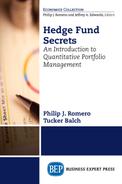How Valuation Is Used by Hedge Funds
Value investors, and the long strategies of hedge funds, will screen for companies whose current price is well below their estimate of intrinsic value. The short component of a hedge fund strategy will do the opposite: they will short firms whose market price is well above intrinsic value.
How and Why Events Affect Prices
If a company’s value is—optimistically—the present value of all of its future cash flows, then new information that changes expectations about those cash flows will change stock prices.
If most trades occur when the buyer has a different view of the stock’s value than the seller, then the receipt of value-relevant news presents an opportunity. If negative news about a company occurs, sellers may wish to unload the stock now in the hope that the buyers who are not yet aware of it will continue to value the stock based on old information that indicates a higher price. Similarly, if buyers believe they know positive news sooner than do sellers, they can buy the stock before sellers upgrade their asking price. So self-interest can drive stock prices up or down out of proportion to the apparent significance of a piece of news, as each trader tries to exploit it before others. A market’s efficiency reflects the speed at which this happens.
A study by MacKinlay examined the effects of good and bad news on stock prices, tracing prices for 21 days before and 21 days after an event, where events were characterized as good news, bad news, or no news. Averaging over many companies and their events, bad news generally reduced stock prices by a few percent. Typically, the price fell by 2 to 3 percent immediately after the news, then partly recovered in the ensuing days, ending 1 to 2 percent below the price just before the event. The pattern after good news was the mirror image: prices jumped immediately after the event, then partly retraced, ending up 1 to 2 percent 21 days after the event. Interestingly, prices followed a similar, but less pronounced, trajectory before the event: sliding slowly down in the 21 days before the bad news, or creeping slowly up in the 21 days before good news. This again suggests the market is quite efficient, with investors anticipating the news and trading accordingly in advance of the actual event.
Events can be company-specific, industry-specific, or economy-wide. Many “macro” hedge funds specialize in investing based on expected indirect and secondary effects of events. For example, a belief that developed economies will slow might lead a fund to short Chinese manufacturers, on the theory that those firms that export will see slower sales as demand from consumers of developed world declines. As an extension of this idea, an event that negatively affects one industry may help an industry that produces a substitute product: A drought in coffee-producing regions might cause some beverage drinkers to switch to tea, helping tea producers. A hedge fund might short coffee companies and go long in tea companies.
Event studies are discussed at greater length in Chapter 12.
David Einhorn, Greenlight Capital

Born: 1968
Firm: Greenlight Capital, midtown Manhattan
Founded: 1996
Style: Long/short value–oriented equity.
Annual return: “north of 19 percent,” according to Forbes
AUM: $8 billion (2012)
Einhorn’s background: He was born in New Jersey and raised mostly in Wisconsin. He graduated from Cornell in 1991 with a bachelor’s in Government. He founded Greenlight with $900,000 in his own and family funds. Greenlight’s early years, and a deep look into its short of Allied Capital based on Einhorn’s suspicions of accounting fraud, are detailed in his book Fooling Some of the People All of the Time, published in 2008, with a second edition in 2010.
Significant trades: Major shorts (covered extensively in the media) include Allied Capital in the mid-2000s; Lehmann Brothers in 2007 (18 months before its bankruptcy), and Green Mountain Coffee Roasters in 2011. In April 2013, Einhorn filed a lawsuit against Apple to pressure it to issue dividend-paying preferred stock, to return some of its $100 + billion in cash to shareholders.
Color: Einhorn founded the “Portfolios with Purpose” virtual stock trading contest, with proceeds to charity; and he donates his winnings in the World Series of Poker to charity. In the summer of 2011, Einhorn entered into negotiations to purchase a minority stake in the New York Mets for $200 million, but those talks were suspended by the autumn.
